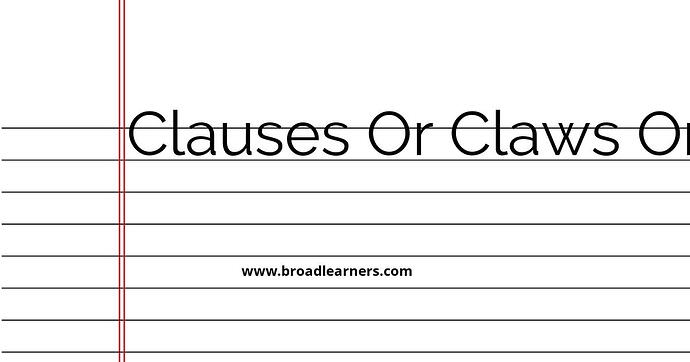'Clauses', 'claws', and 'clauses' are commonly confused words in English grammar. Understanding the difference between these words is important to use them correctly in written and spoken English.
'Clauses' is a term used in grammar to refer to a group of words that contains a subject and a verb. Clauses can be independent or dependent, and they are used to convey complete thoughts or provide additional information within a sentence.
'Claws' are sharp curved nails on the feet of birds, reptiles, or some mammals. They are used for gripping, climbing, or hunting.
'Clauses' is a misspelling of the word 'claws' and is not a correct usage of the term.
Let's take a closer look at the meanings and usage of 'clauses' and 'claws'.
| 'Clauses' | 'Claws' |
|---|---|
| The word 'clauses' is used in grammar to refer to a group of words that contains a subject and a verb. | The word 'claws' refers to sharp curved nails on the feet of birds, reptiles, or some mammals. |
|
|
To remember the difference between 'clauses' and 'claws', it can be helpful to associate 'clauses' with grammar and 'claws' with sharp nails on animal feet.
Here are some examples of correct usage:
- She learned about independent and dependent clauses in her English class.
- The lion's sharp claws were essential for hunting.
Remembering the correct usage of 'clauses' and 'claws' will improve your grammar and communication skills.
